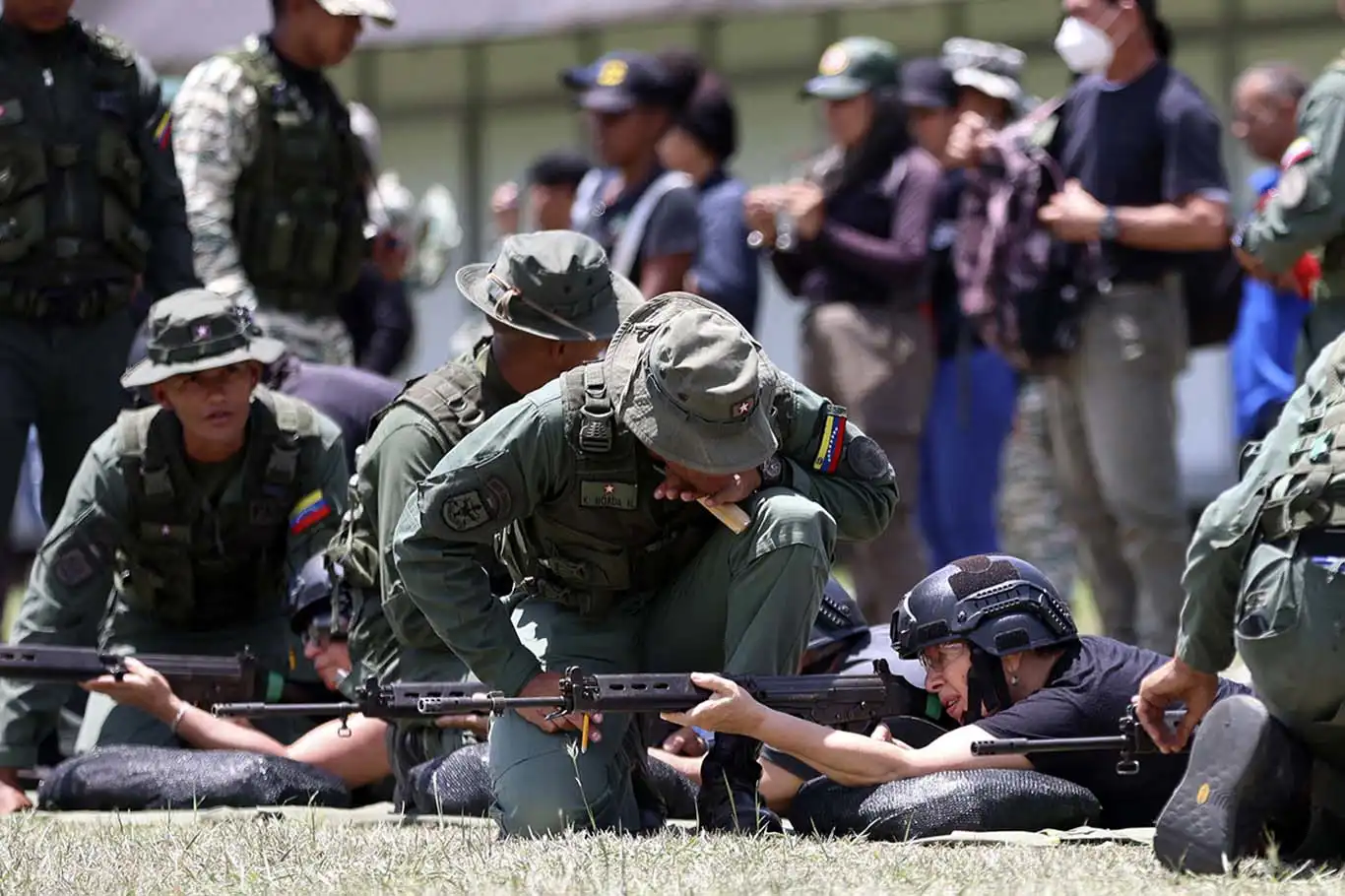Venezuela bolsters national defense with new command law


President Nicolás Maduro this Wednesday signed into law the new Comprehensive Homeland Defense Command legislation, a move aimed at unifying Venezuela’s military, police and popular institutions under a single command structure in order to strengthen national preparedness and protect the nation’s sovereignty.
Speaking during a broadcast on state television, Maduro declared that “from this moment forward … all Comprehensive Defense Commands, which bring together all public institutions of the Venezuelan State, the military, and all popular power, must be activated at dawn.”
The new law mandates the establishment of defense commands at national level, in each state and in the country’s 335 municipalities. These commands are tasked with coordinating the Bolivarian National Armed Forces (FANB), police and popular forces in what the government describes as “integral” or “comprehensive” defense.
Maduro emphasised that this step is necessary in order to be prepared “to win, to triumph through patriotism and courage,” should the country ever need to undertake an armed struggle to defend its legacy.
While Venezuela affirms its commitment to peace, the law forms part of a broader strategy to respond swiftly to any threats — internal or external — and to defend national sovereignty, territorial integrity and social progress. In recent weeks the government has activated major defence exercises under the banner Operation Independence 200, mobilising the FANB, Bolivarian militias and civil-police forces in a fusion of citizens and armed institutions.
Defence Minister Vladimir Padrino López stated that these manoeuvres include deployment of land, air, naval and riverine assets, and that the establishment of the new defense command structure ensures that Venezuela “is strengthened … with the people, to preserve at all costs our freedom, sovereignty, independence, stability and peace.”
The government presents the new law as a mechanism to unify all sectors of society – military, police and the organised popular power – into a cohesive defence posture, thereby reinforcing institutional stability and national cohesion. Officials say the commands will coordinate essential services, protection of supply chains, production and infrastructure in the event of any aggression.
The law comes amid growing tensions in the Caribbean region, including what Caracas perceives as increasing military activity by the United States Caribbean Sea region and threats to Venezuelan sovereignty. The government says these developments underscore the necessity of the new command structure and the full mobilisation of the Venezuelan people in defence of the homeland.
In his remarks, President Maduro reiterated that Venezuela remains a country of peace, but one that must be ready to defend itself. “We are in a different phase where the defence of territory and sovereignty falls to all citizens, not exclusively to the Armed Forces,” he said, underlining the concept of a “people in arms” linked to the state’s defence capacities.
The authorities say the new law signifies a renewal of the social compact between the government and the people — a pact of defence, stability and independent development, rooted in Bolivarian ideals. With the institutional architecture now in place, officials say the country is strengthened for whatever challenges may come. (ILKHA)
LEGAL WARNING: All rights of the published news, photos and videos are reserved by İlke Haber Ajansı Basın Yayın San. Trade A.Ş. Under no circumstances can all or part of the news, photos and videos be used without a written contract or subscription.
French President Emmanuel Macron is set to unveil the country’s National Space Strategy on Wednesday, emphasizing the growing importance of space in global security and the need for Europe to defend its orbital interests.
German special police have arrested a 49-year-old man accused of operating a darknet platform that solicited cryptocurrency donations to fund assassinations of high-profile political figures, including former Chancellors Olaf Scholz and Angela Merkel, prosecutors said Tuesday.
The Orphans Foundation (Yetimler Vakfı), a non-governmental organization based in Türkiye, has launched the “A Table Every Day” project to bring food relief and hope to Gazans enduring severe shortages of basic necessities.